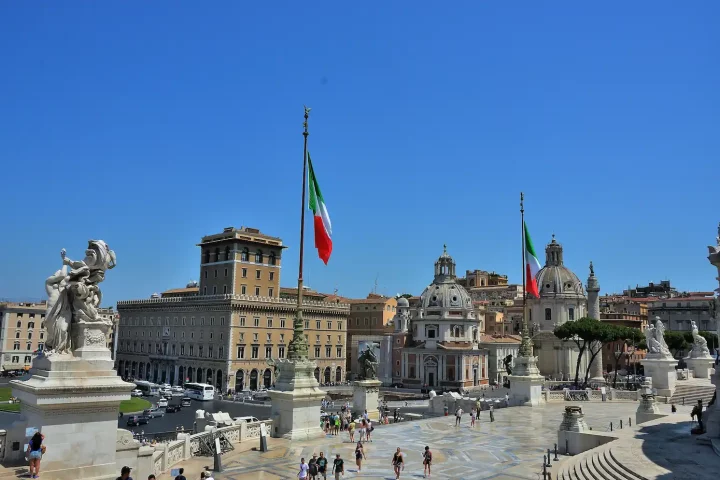Understanding the Voto di Fiducia
The voto di fiducia (vote of confidence) is a key mechanism in the Italian parliamentary system, designed to ensure government stability while linking legislative approval to executive survival. As Article 94 of the Italian Constitution states, the government must secure the confidence of both parliamentary chambers to function effectively.
This requirement makes votes of confidence a fundamental step in government formation, but also a strategic political tool that can be used to accelerate legislation, limit opposition influence, or consolidate executive control.
The recent approval of Decree-Law 36/2025 in the Italian Senate has reignited debates surrounding this practice. Prime Minister Giorgia Meloni’s government invoked the voto di fiducia to fast-track approval of legislation restricting Italian citizenship by descent.
While constitutionally legitimate, critics argue that frequent reliance on this mechanism undermines democratic deliberation, turning Parliament into a mere rubber stamp for government decisions.
How the vote of confidence works in Italy
The vote of confidence operates at three different levels in the Italian parliamentary system:
- Government formation: When a new government is appointed, it must obtain parliamentary approval through a vote of confidence, ensuring majority support before officially assuming power.
- Vote of no confidence: At any time, Deputies and Senators can propose a motion of no confidence against the government. However, the motion must be endorsed by at least one-tenth of the members from either the Chamber of Deputies or the Senate to proceed.
- Confidence votes on legislation: The most controversial form, where the government ties the passage of a law to its political survival, compelling allied lawmakers to support the measure regardless of dissent.
In cases like Decree-Law 36/2025, the confidence vote ensures rapid passage of a proposed law without amendments or extensive debate. While this helps avoid delays and political gridlock, it reduces legislative scrutiny, raising concerns about democratic representation.
Strategic use of voto di fiducia in Italian politics
Successive Italian governments have frequently relied on the voto di fiducia to push through contentious legislation. The tactic is used when:
- The government wants to accelerate a law’s approval without amendments.
- Internal divisions within the ruling coalition threaten legislative cohesion.
- Opposition forces attempt to delay or obstruct a key government proposal.
In the case of Decree-Law 36/2025, Meloni’s administration invoked the confidence vote to ensure passage without modifications. The decree, which restricts Italian citizenship eligibility, faced opposition from parties advocating for broader recognition of Italian descendants worldwide. By invoking voto di fiducia, the government forced its allies to vote in favor, ensuring 81 votes in favor and 37 against, bypassing any potential amendments.
While legally permissible, frequent use of this tool blurs the line between governance and coercion, as legislators are forced to support proposals they may privately oppose to avoid destabilizing the ruling coalition.
Political and democratic implications
The voto di fiducia is often viewed as a double-edged sword:
On one hand, it enhances governability, preventing political deadlock and ensuring that major reforms pass swiftly.
On the other, it limits parliamentary independence, turning the legislature into an institution that simply ratifies government decisions rather than actively shaping policy.
Critics argue that frequent confidence votes weaken the role of Parliament, eroding democratic deliberation. In the case of Decree-Law 36/2025, opposition voices were effectively silenced, as the decree was approved without amendments, preventing modifications that could mitigate its restrictive impact.
There is also growing concern that repeated use of voto di fiducia may lead to executive overreach, where governments circumvent normal legislative procedures to consolidate power.
The future of voto di fiducia in Italy
The use of confidence votes in Italy shows no signs of decline. As political parties become more fragmented, governments increasingly rely on voto di fiducia to secure legislative victories.
Moving forward, Italy will need to balance governance efficiency with democratic accountability, ensuring that the confidence vote remains a tool for stability—without undermining parliamentary autonomy.
The voto di fiducia is an integral part of Italy’s parliamentary system, designed to ensure government stability while facilitating legislative efficiency. However, its frequent use, particularly in cases like Decree-Law 36/2025, raises serious concerns about democratic representation. When used responsibly, it strengthens governability, but when overused, it transforms Parliament into a passive entity, weakening legislative independence.
The debate over the voto di fiducia will continue as Italy grapples with its constitutional limits, questioning whether this mechanism enhances or erodes democratic integrity. Future reforms may seek to regulate its application, ensuring that governments remain accountable while still retaining the ability to legislate effectively.






